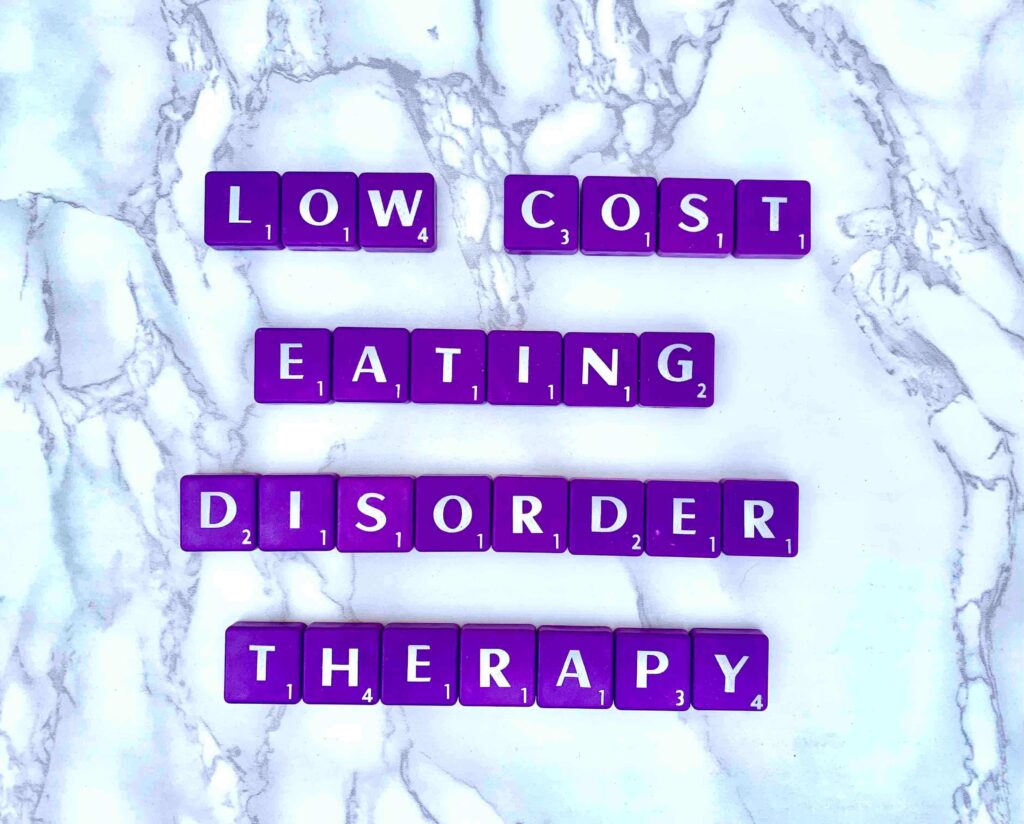Dating with ARFID
by Carly Poynter, Psy.D. & Emily Walker, AMFT Dating under normal circumstances is hard. Nerves are high. Palms get sweaty. And you wonder nervously, ‘Does this person like me?’ Many people find dating challenging, even though common dating activities are supposedly fun. Many first dates revolve around meeting over food or drinks — grabbing a …
![Eating on a date with ARFID [Image description: a man and a woman smiling at each other seated at a table. The man holds a glass and the woman has food in front of her] Depicts a potential couple on a date where one of the members has ARFID](https://www.eatingdisordertherapyla.com/wp-content/uploads/2025/02/happy-valentines-day-1807617_1280-1024x682.jpg)
![Are you ready to begin eating disorder therapy [Image description: a man wearing a purple sweatshirt is looking at his calendar on a wall] Represents a person beginning eating disorder therapy in California](https://www.eatingdisordertherapyla.com/wp-content/uploads/2023/10/DALL·E-2023-10-21-19.40.45-a-drawing-of-a-person-viewed-from-the-rear-and-they-are-looking-at-and-holding-a-purple-calendar2.png)
![Eating Disorder Recovery Journey [Image description: drawing of a happy woman driving in a purple car] Represents a client in eating disorder recovery in Los Angeles, California](https://www.eatingdisordertherapyla.com/wp-content/uploads/2023/06/DALL·E-2023-06-05-12.41.25-a-drawing-of-a-purple-car-driving-on-a-road-and-there-is-a-happy-woman-leaning-out-of-the-drivers-window.png)
![Early morning eating disorder therapy in California [Image description: a woman sits in bed drinking her coffee] illustrating a potential client drinking coffee during her early morning therapy session in California]](https://www.eatingdisordertherapyla.com/wp-content/uploads/2023/03/bodyliberationstock-89526-2-1024x683.jpeg)
![Regular Eating in Eating Disorder Recovery in Los Angeles [photo description: a black couple smiling as they wash and cut vegetables] Represents a possible person in recovery from an eating disorder engaging in regular eating in Los Angeles, CA.](https://www.eatingdisordertherapyla.com/wp-content/uploads/2023/02/allgo-an-app-for-plus-size-people-lAXOrQqrEjM-unsplash1.jpg)
![CBT plus HAES for Eating Disorders [Image description: large bodied gender neutral person seated and facing a therapist whose back is to the camera] represents a potential client with an eating disorder receiving CBT plus HAES in Los Angeles, California](https://www.eatingdisordertherapyla.com/wp-content/uploads/2023/01/allgo-an-app-for-plus-size-people-OxwQT1woe-Y-unsplash.jpg)
![Is Weight Suppression Driving Your Binge Eating? in Los Angeles, California [Image description: drawing of two women wearing purple sweaters and one is fat] Represents potential person overcoming weight suppression during eating disorder therapy in Los Angeles, California](https://www.eatingdisordertherapyla.com/wp-content/uploads/2022/10/My-project15.png)
![Adults with ARFID in Los Angeles, California [Image description: drawing of a woman looking at her food and eating very slowly] Represents a potential adult patient with ARFID seeking counseling in Los Angeles, California](https://www.eatingdisordertherapyla.com/wp-content/uploads/2022/10/My-project14.png)

![Structuring Your Eating Disorder Recovery Environment [Image description: hand visible writing in planner] represents a client in eating disorder recovery in Los Angeles, California writing a meal plan](https://www.eatingdisordertherapyla.com/wp-content/uploads/2020/10/stil-flRm0z3MEoA-unsplash-768x1024.jpg)